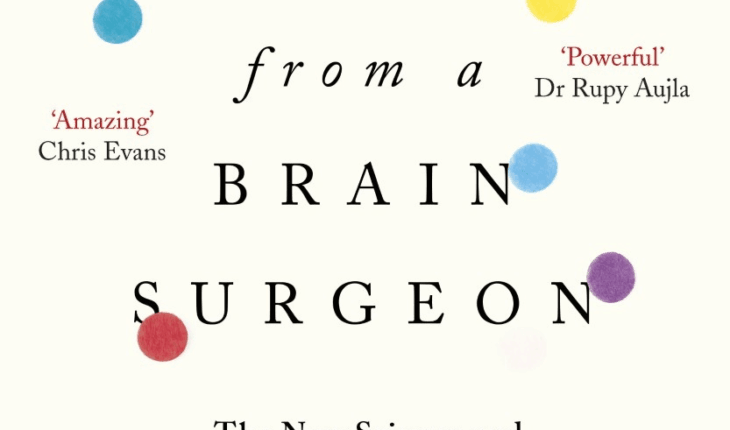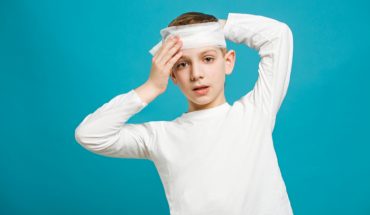Rebecca Wallersteiner takes a look at ‘Life Lessons from a Brain Surgeon,’ Neurosurgeon Rahul Jandial’s new book on why we should never underestimate the power of the human brain
In this honest, gripping and often playful book, packed with stories and anecdotes, neuroscientist and neurosurgeon Rahul Jandial explains the intricate workings of the human brain, debunking myths and providing practical ways in which we can boost our brain power and stave off Alzheimer’s. What makes this memoir so readable is Jandial’s passion for his work. He writes vividly: ‘There’s fear, of course, but also awe that you’re literally inside somebody’s head, which elicits intensity as well as excitement. I don’t want to sound indelicate, but for me it’s a thrill. Some people like skiing, or mountain climbing, or playing poker. I like operating on people’s brains. The risk is that I will nick a vein and part of the brain will die. Or I will go in a the wrong spot and won’t be able to reach most of the tumour. Or everything will seem to go perfectly during the surgery, but the patient will wake up unable to speak for the rest of their life.’
The wonders of the human brain require no exaggeration. Between our ears live and estimated 85 billion neurons – as many brain cells as there are stars in the Milky Way galaxy. ‘Even when brain surgeons know that a particular procedure works to relieve suffering, we don’t often know why. I can implant an electrode deep into your brain that I know will relieve depression or OCD or improve Parkinson’s disease. How? Brilliant question. When you find out, let’s connect,’ says Jandial thoughtfully.
His intriguing cases include William, a former TV producer, now homeless, who ‘looked like an emaciated lion’ with ‘vacant eyes’ and a ‘Spock-like’ emotionless demeanour, who turned out to have a slow-growing tumour the size of a chicken’s egg in the frontal lobes of his brain – an area which controls emotion, motivation and creativity.” A few months after surgery to remove the tumour, ‘William had reconnected with his children, had a job, a car and an apartment,’ writes Jandial.
Another fascinating case was Marina, a 33 year old Chilean language teacher, with a tumour (meningioma) the size of a peach who had to choose whether to lose her ability to speak Spanish or English after brain surgery. The tumour was located in her left frontotemporal region, the seat of language. She chose to lose English, as her first language, and her family’s was Spanish.
Neuro-fitness
“The brain is not a computer, despite oft-repeated claims to the contrary. The brain is a living thing, much more like an overgrown garden than an orderly filing cabinet. And mind-wandering through your own garden of thoughts, memories, feelings and desires is a sure way to discover your inner creative self,” writes Jandial. Some of his other easy neuro-fitness exercises to boost memory, control stress, improve sleep, enhance creativity and reduce pain and depression include ‘let your mind wander as daydreaming is creative’, ’eat real food, with plenty of fruit, vegetables and whole grain’ ‘keep doing new things’ and ‘get outside’ more. Practising meditative breathing can help lower your blood pressure and control negative emotions. Going without food for half a day increases your brain’s natural growth factors, stimulating the growth of neurons and protecting against neurodegeneration.
Why We Sleep
“Since the dawn of the twenty-first century, neuroscientists have learned that not only do all mammals do it but so do all fish, birds, bees, worms, flies and ants. (Queen ants sleep for about nine hours per night, one study found, while worker ants get half that much but supplement it with a bunch of power naps),” writes Jandial. The great mystery is why living creatures allocate so much of their time to lying still, not eating, chatting, or mating. “One thing we know that humans and mammals do during sleep is to transform short-term memories stacked up during the day into memories that can last a lifetime. Although the hippocampus is essential for making new memories, other brain regions distributed across your cortex are necessary for long-term storage. So, you can think of sleep as the time when your brain ships memories from your hippocampal loading dock to distant corners across your brain.” After studying for an exam students will remember more after a good night’s sleep than if they had burnt the midnight oil and stayed awake studying into the early hours. Likewise, people who learn new physical skills, such as ballet, or tennis, perform better the next morning after a night’s sleep.
Dreams
Once upon a time dreams were taken as omens from above. Until, in 1899, Sigmund Freud asserted in his book The Interpretation of Dreams that they throw up symbols of our fears, repressed childhood memories and desires. Although Freud catapulted psychology into the twentieth century, not all his theories have held up to scientific research. “That’s not to say dreams aren’t cool and fascinating. Sometimes they do reveal an unexpected solution to a vexing problem or at least a fresh insight. Scientifically speaking, though, we still do not really understand why we dream – not in the same way we understand why we breathe, eat and have sex. It remains, as the journal Science noted in its 125th anniversary issue, one of nature’s great unsolved mysteries,” writes Jandial.
‘One thing brain surgeons do know for certain is that every brain can make a comeback following a devastating illness, or injury. We witness the living proof in our patients who have experienced strokes, trauma, or brain cancer and who manage to make incredible recoveries. They relearn to walk and talk, regain fine motor skills and improve their cognitive functioning,’ reflects Jandial.
Blending cutting-edge research with beautiful story-telling, this revelatory book is peppered with witty eye-popping anecdotes, which show that you should never underestimate the extraordinary power of the human brain. Pack it for the weekend.
Rahul Jandial, MD, PhD. is an American dual-trained neurosurgeon and scientist at City of Hope, a research centre, hospital and postgraduate training faculty in Los Angeles. When he isn’t performing surgery he is leading a team of scientists in Jandial Laboratory, named after him and known for its cutting-edge approach to brain surgery and neuroscience. He is also founder and co-director of INCA, offering surgeon’s training and surgery on children in hospitals in Central America, South America, Eastern Europe and Africa. He is the author of 10 academic books and more than 100 papers about brain surgery and neurosciences used by medical students, PhD students, and neurosurgeons.
Life Lessons from a Brain Surgeon: The New Science and Stories of the Brain by Dr Rahul Jandial, published a paperback by Penguin Life, on February 6th 2020, Priced at £9.99p
- Dream Worlds a new exhibition in Cambridge - 14th December 2024
- “All Our Stories” a major new exhibition - 26th September 2024
- Dance yourself well - 23rd June 2024






